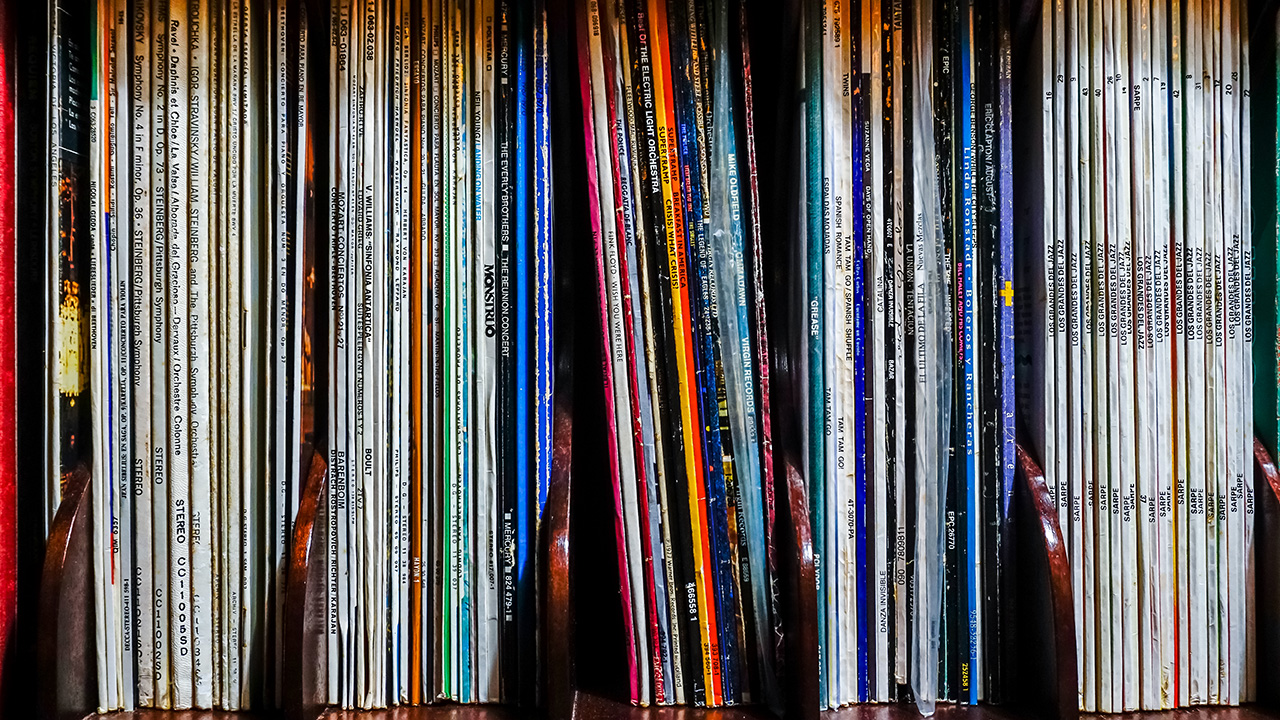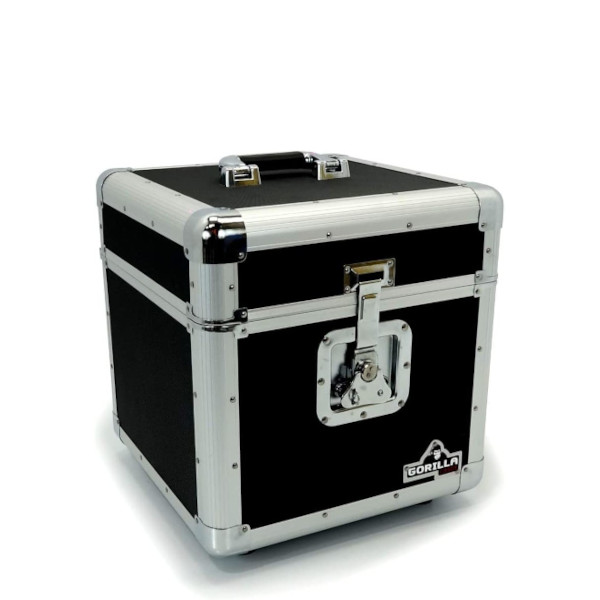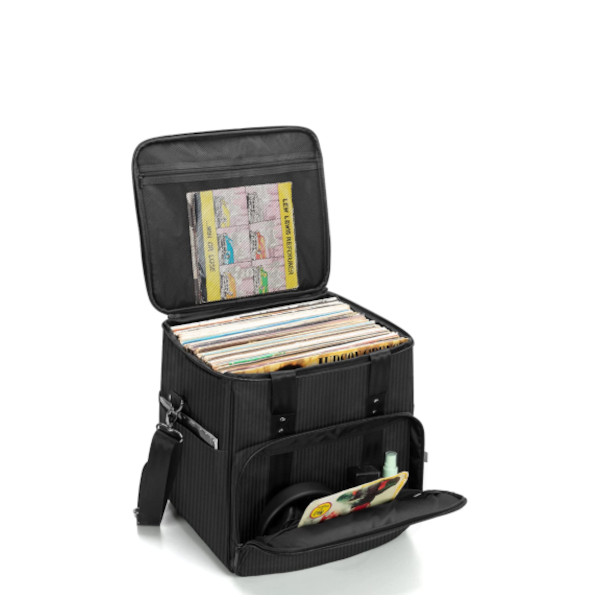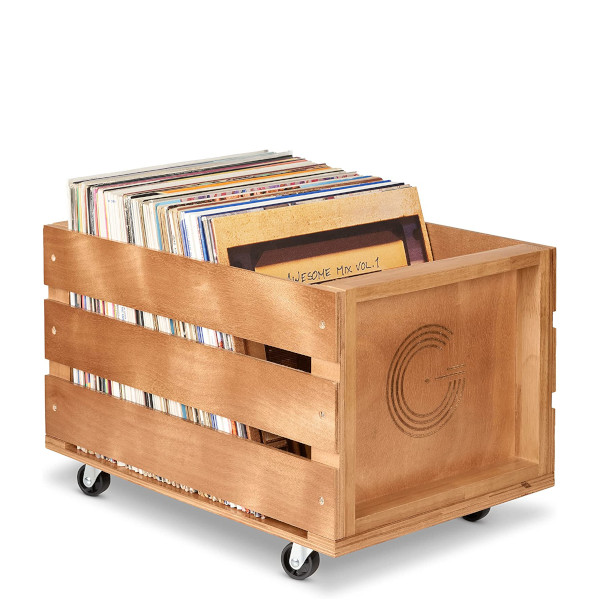How to store your vinyl: The ultimate guide to keeping your records in pristine condition
Discover the optimum conditions for stashing vinyl, along with some of the best storage options available right now

Select the newsletters you’d like to receive. Then, add your email to sign up.
You are now subscribed
Your newsletter sign-up was successful
Want to add more newsletters?

Every Friday
Louder
Louder’s weekly newsletter is jam-packed with the team’s personal highlights from the last seven days, including features, breaking news, reviews and tons of juicy exclusives from the world of alternative music.

Every Friday
Classic Rock
The Classic Rock newsletter is an essential read for the discerning rock fan. Every week we bring you the news, reviews and the very best features and interviews from our extensive archive. Written by rock fans for rock fans.

Every Friday
Metal Hammer
For the last four decades Metal Hammer has been the world’s greatest metal magazine. Created by metalheads for metalheads, ‘Hammer takes you behind the scenes, closer to the action, and nearer to the bands that you love the most.

Every Friday
Prog
The Prog newsletter brings you the very best of Prog Magazine and our website, every Friday. We'll deliver you the very latest news from the Prog universe, informative features and archive material from Prog’s impressive vault.
From cassette tapes to CDs, MP3s to streaming – vinyl records have survived successive trends in music listening. The reason is simple: they still sound fantastic, capturing an authentic sound that other formats simply can’t recreate.
Not only that, but owning physical records gives you the chance to appreciate cover art in all its glory. Whether it’s Peter Blake’s psychedelic sleeve for Sgt Pepper’s or that gleaming guitar on the front of Brothers In Arms by Dire Straits, you won’t get to appreciate it by asking Alexa to play your favourite album.
Vinyl listening comes with a fairly sizable caveat, however: treat your records with disdain and they’ll soon start to crackle and pop like a popular breakfast cereal. And that cover art? Well, let’s just say it won’t look very good with a rip or tear across it.
Thankfully, you can avoid such travesties by learning how to store your vinyl properly – and you can do that by reading this guide I've put together. Along with detailing the optimum conditions for stashing your collection – in terms of temperature, sunlight, humidity and pressure – I’ll lay down the do’s and don’ts of vinyl storage, and share some recommendations on the best boxes, bags and crates.
For more tips on keeping your records safe, read our guide to the best vinyl record storage. And if you’re on the lookout for a new turntable, our guide to the best record players will provide you with some great options across a range of budgets.
How to store vinyl: The basics
Temperature
Think twice before storing your vinyl in a glass conservatory or anywhere else that’s exposed to a lot of heat (for example, close to a fire or heater). The plastic used to make records – polyvinyl chloride (PVC) – softens when it gets too hot, usually at temperatures above 60C/140F), which can lead to things like warping and groove distortion.
If you’re unsure about the heat levels in your home or storage facility, consider buying a thermometer, which will enable you to monitor the temperature. Seeing as moisture can also impact the condition of your vinyl, you might want to buy one with a built-in hygrometer.
The latest news, features and interviews direct to your inbox, from the global home of alternative music.
Sunlight
If you store your vinyl in a conservatory or close to a window, it’s not just the heat that can play havoc – your records may also become exposed to the sun’s ultra-violet (UV) rays. Over time, this will cause your sleeves to fade, ruining the joy of looking at that lovely cover art. You may have noticed that records sold at car boot sales often have faded and discoloured sleeves. More often than not, this is because they’ve been sitting there in the sun for hours on end.
Humidity
As previously mentioned, humidity is another important thing to consider when storing records. Things like cooking without ventilation, showering without a fan in the bathroom and drying your clothes indoors can create too much moisture in the home. This may cause mould to spread, which can have a serious impact on your vinyl. Not only can it clog the grooves and degrade the surface of the records, it can create a musty smell that’s hard to shake. The ideal humidity for records is somewhere between 45% and 55% – to keep tabs on it, invest in a combined thermometer and hygrometer, as I suggested above.
Pressure
You remember those ‘pile-ons’ at school, and how uncomfortable it was being at the bottom of the heap? Well, the same principle applies to records. Pile them one on top of each other in a big stack and the discs at the bottom aren’t going to come out of it very well, with warping being the most likely outcome. Lining your LPs up side-by-side is a much more sensible idea – but be sure to keep them upright and quite close together, otherwise they can end up at weird angles, which may cause them to bend.
I say “quite close together” because packing them in too tightly will increase the heat and pressure, which, again, could lead to warping. If you’re able to, use dividers to separate your records – not only will they give each LP room to breathe, but they’ll also make it easier to retrieve individual albums during your next listening session.
Sleeves
To help keep your records in tip-top condition, they should always be placed inside an inner sleeve before putting them back in their outer covers. Traditionally, the inner sleeves found inside albums have been made from thin paper or cardboard. However, if you’re serious about maintaining the quality of your vinyl and the packaging, it’s worth investing in some plastic ones. High-density polyethylene (HDPE) sleeves are not only anti-static, but they’ll help protect your records from sunlight and contamination too.
Cleaning
Storing your records properly isn’t the only way to keep them in great condition, and whether you’re stashing them away for the short or the long-term, you should always give them a quick clean first. This will prevent the build-up of dust, mould or mildew, all of which can seriously impact your listening experience over time. I would recommend getting a good-quality microfibre cloth and some cleaning solution, as well as a brush for removing any static. For tips on what to buy, check out our guide to the best vinyl record cleaners.
How to store vinyl: Do's and dont's
Do
+ Store your vinyl in a cool place
+ Keep your records upright and quite close together
+ Use dividers to separate them
+ Give your records a quick clean after listening to them
Don't
- Keep your records close to a fire or heater, or in direct sunlight
- Allow your home to accumulate too much moisture
- Stack your records in a big pile, with one on top of another
- Store them without an inner sleeve. Look for ones made of HDPE
How to store vinyl: Storage ideas
If you're on the lookout for some practical storage ideas for your vinyl collection, I've picked out a three products that's keep your records safe and in good condition.

Featuring strong latches and aluminium corner guards, this sturdy chest will keep up to one hundred 12” records safe. Its foam interior will help to keep your discs in tip-top condition, and there’s also a carry handle for when you need to take your collection with you.

If you need a portable solution but prefer a bag to a box, this could be the ticket. It carries 60 records, but these can be a mixture of 7”s, 10”s and 12”s – and the waterproof design ensures they’re protected from the rain while you’re on your travels.

I love the rustic look of this vinyl crate. With space for up to a hundred 12” records, it’ll cope with most collections. The slatted design will keep your discs nice and cool, and the attached wheels will enable you to move your stash from one room to another.
Meet the author

Paul has spent the last eight years testing and writing about record players and audio technology for Louder, T3 and TechRadar. As an avid music fan Paul puts turntables through their paces by playing some of his favourite vinyl by artists including Weyes Blood and Nirvana on the kit to see how they hold up. If it's got a good melody, he's on board with it.
Read more
- 9 cheap upgrades you can make to improve your vinyl setup
- Best Bluetooth turntables: Grab one of the best record players
- The best budget turntables: Spin your sounds for less
- Best record players for beginners: Our pick of top quality turntables
- Best portable record players: Turntables for small spaces
Paul has spent the past eight years testing and writing about gadgets and technology for the likes of Louder, T3 and TechRadar. He might not have the wealth or the looks of Tony Stark, but when it comes to knowing about the latest cool kit, Paul would surely give Iron-Man a run for his money. As for his musical leanings, Paul likes everything from Weyes Blood to Nirvana. If it's got a good melody, he's on board with it.
You must confirm your public display name before commenting
Please logout and then login again, you will then be prompted to enter your display name.
